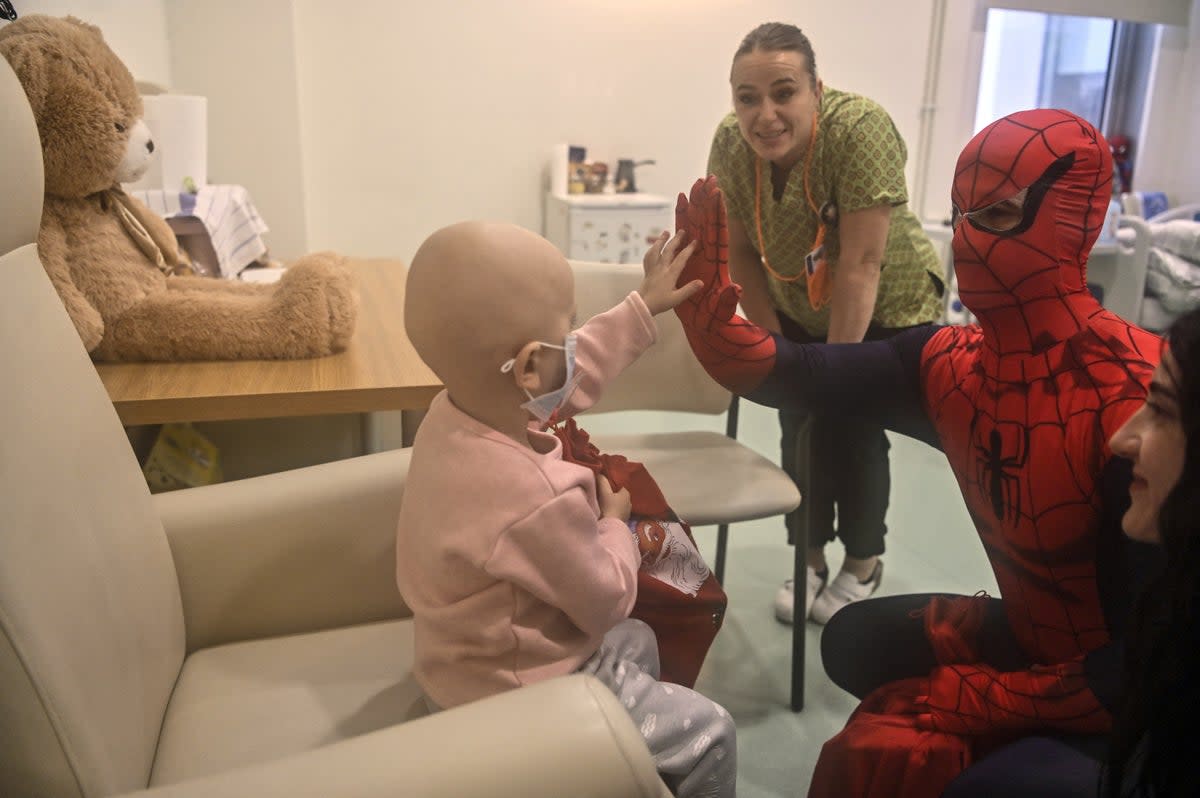Targeted cancer medicine able to cure most aggressive cases with ‘remarkable results’

Cancer treatment tailored to an individual child’s condition can lead to significant remission, a new study has found, giving hope to millions of children and their families.
The study was a part of Australia’s national precision medicine programme for children suffering from cancer, involving over 100 scientists and clinicians working together across nine child cancer centres.
The programme, which began in 2017, is focused on finding new treatment options for children with high-risk cancers.
Precision medicine using genome sequencing is superior to standard therapy for the survival of children, even those with aggressive cancers, according to the new study published in the journal Nature Medicine.
“These are very exciting results which we believe have important implications for the treatment of children with cancer,” David Ziegler, chair of clinical trials for the Zero Childhood Cancer Programme and an author of the study, said.
Cancer is the main cause of disease-related death in children in most developed countries.
At least a quarter of children diagnosed with aggressive high-risk cancers have a five-year survival rate of less than 30 per cent, researchers said.
But precision medicine for their cancers appears to significantly improve their odds of survival, they added.
In this approach, clinicians use genetic or molecular profiling techniques to optimise treatment to the best efficiency and therapeutic benefit of patients.
Out now in Nature Medicine! Our ZERO Childhood Cancer team has shown that children with high risk cancers have better outcomes with precision-guided treatment. Thank you to our patients and families. @ProfDavidZieg @KidsCancerInst @SCHNkids @UNSWMedicine https://t.co/EBHMyfecLC
— Marion Mateos (@Dr_MMateos) June 6, 2024
The method matches treatments to individual patients by taking into account their genetic makeup, medical history, test results and other unique characteristics.
“We have already shown that precision medicine can help identify new treatment options for many high-risk patients,” Dr Ziegler said. “Now we’ve shown it not only can shrink their tumours but also lead to a significant improvement in long-term survival for those patients.”
The study followed for 18 months 384 children with high-risk cancers who had a very low chance of cure.
Published today in Nature Medicine, we have shown that precision-guided therapy provided by ZERO leads to significantly improved outcomes for children with high-risk cancers & is superior to standard therapy, both in terms of clinical response & survival. https://t.co/ChCeXyhiQJ pic.twitter.com/QTEuPJZybn
— Childrens Cancer Institute (@KidsCancerInst) June 7, 2024
Scientists measured the children’s “progression-free survival”, which is the length of time a patient lives without their cancer getting worse.
They found that children who took the new treatment were significantly better than those who did not with their two-year progression-free survival more than double that of those who received standard therapy.
About 55 per cent of children who received personalised treatment had complete or partial remission or had their disease stabilised for at least six months, researchers found.
Amazing achievement @ProfDavidZieg. Congrats to you and the amazing ZERO Team. This is fantastic results and a hope for all children and families suffering from this devastating disease. Proud to be at @KidsCancerInst. One more milestone towards the cure.
— Jean Bertoldo (@jean_bertoldo) June 7, 2024
Since these children had highly aggressive cancers that failed to respond to standard therapy in many cases, scientists described the results as “remarkable.”
Children who received the new therapy early on in their treatment pathway did much better than those who received it after their disease progressed, indicating that the sooner personalised treatment is implemented the better the chance of preventing death.
📣 Out today in Nature Medicine https://t.co/zbdvCwpfHJ ZERO showed using molecular profiling we see an objective response in 36% and improved 2-year PFS. Our approach and pipelines in precision medicine is working and improving outcome for children with cancer. @KidsCancerInst
— Chelsea Mayoh (@cmayoh_bio) June 7, 2024
Overall, the findings demonstrate that children with high-risk cancers benefit significantly from personalised treatment identified with the help of comprehensive profiling of patients.
“This work provides some hope to families where none previously existed in a new model of treatment for high-risk childhood cancer which is changing national and international clinical practice,” Glenn Marshall, another author of the study, said.
“We have shown that matching a therapy to a patient through molecular analysis of their cancer, and implementing that targeted therapy early on, are key to achieving the best possible results.”

